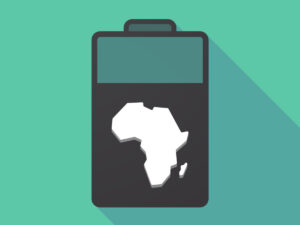Major EV, battery-makers looking to shore up lithium supply as demand ramps up

Pic: Bloomberg Creative / Bloomberg Creative Photos via Getty Images
Special Report: The big automakers are fast tracking their electric vehicle (EV) schedules in order to help meet demand.
Demand is coming much more quickly than expected and Toyota last week revealed it would bring forward its target of having half of its global sales from EVs to 2025, five years earlier than anticipated.
Reuters quoted executive vice president Shigeki Terashi as saying that Toyota now faced a higher-than-expected demand for cars that use batteries, rather than gasoline.
He added that increasingly stringent emissions regulations required more lithium-ion batteries in the next five years than Toyota plans to produce.
Meanwhile, the United Kingdom will need a staggering amount of cobalt, lithium, copper and rare earths to meet its 100 per cent EV target in 2050, according to a new report.
For example, it will take 264,600 tonnes of lithium carbonate equivalent, or 75 per cent of global production in 2018, to replace all UK-based vehicles today with EVs.
And that’s just the UK.
“Over the next few decades, global supply of raw materials must drastically change to accommodate not just the UK’s transformation to a low carbon economy, but the whole world’s,” Professor Richard Herrington said in a letter to the UK’s Committee on Climate Change.
Over in Ireland, the number of EVs that were licensed between January and May this year is already a more than 267 per cent increaseover the number licensed in all of 2018.
AVZ in Chinese battery makers’ sights
This puts emerging lithium producers like AVZ Minerals (ASX:AVZ) firmly in the sights of the big battery and EV makers as they look to shore up supply.
AVZ has already piqued the interest of two big Chinese battery manufacturers for potential investment in or supply from its Manono lithium project in the Democratic Republic of Congo.
The company has had initial talks with Beijing National Battery Technology and early last year inked a memorandum of understanding with China’s Guangzhou Tinci Materials Technology.
Beijing National Battery Technology holds the dominant market position for the supply of batteries to China’s bus industry.
The company has more than 300 patents and six high-performance lithium-ion battery production facilities in Henan, Zhejiang, Hubei and Jiangxi and other regions, with annual production capacity in excess of 3 billion amp hours.
Guangzhou Tinci Materials Technology, meanwhile, is the largest battery electrolyte manufacturer globally and supplies a substantial portion of the global battery electrolyte market.
The Chinese heavyweight has invested in Ronghui Industry, Jiangxi Lithium and other lithium carbonate manufacturers.
And even at conservative lithium prices, AVZ’s Manono project looks set to be a big money-maker.
An extended scoping study for the proposed 5-million-tonne-per-annum operation has strengthened the economics and shown the potential for Manono to be a world-class, high margin, long-life mine.
The study estimates that Manono will have a net present value (before tax and royalties) of US$2.63 billion ($3.8 billion) and an internal rate of return (IRR) of greater than 64 per cent.
IRR and NPV are used to estimate the profitability of a potential operation – the higher they are above zero, the better they are.
- Subscribe to our daily newsletter
- Join our small cap Facebook group
- Follow us on Facebookor Twitter
This story was developed in collaboration with AVZ Minerals, a Stockhead advertiser at the time of publishing.
This advice has been prepared without taking into account your objectives, financial situation or needs. You should, therefore, consider the appropriateness of the advice, in light of your own objectives, financial situation or needs, before acting on the advice. If this advice relates to the acquisition, or possible acquisition, of a particular financial product, the recipient should obtain a disclosure document, a Product Disclosure Statement or an offer document (PDS) relating to the product and consider the PDS before making any decision about whether to acquire the product.
UNLOCK INSIGHTS
Discover the untold stories of emerging ASX stocks.
Daily news and expert analysis, it's free to subscribe.
By proceeding, you confirm you understand that we handle personal information in accordance with our Privacy Policy.








